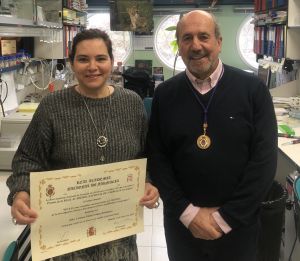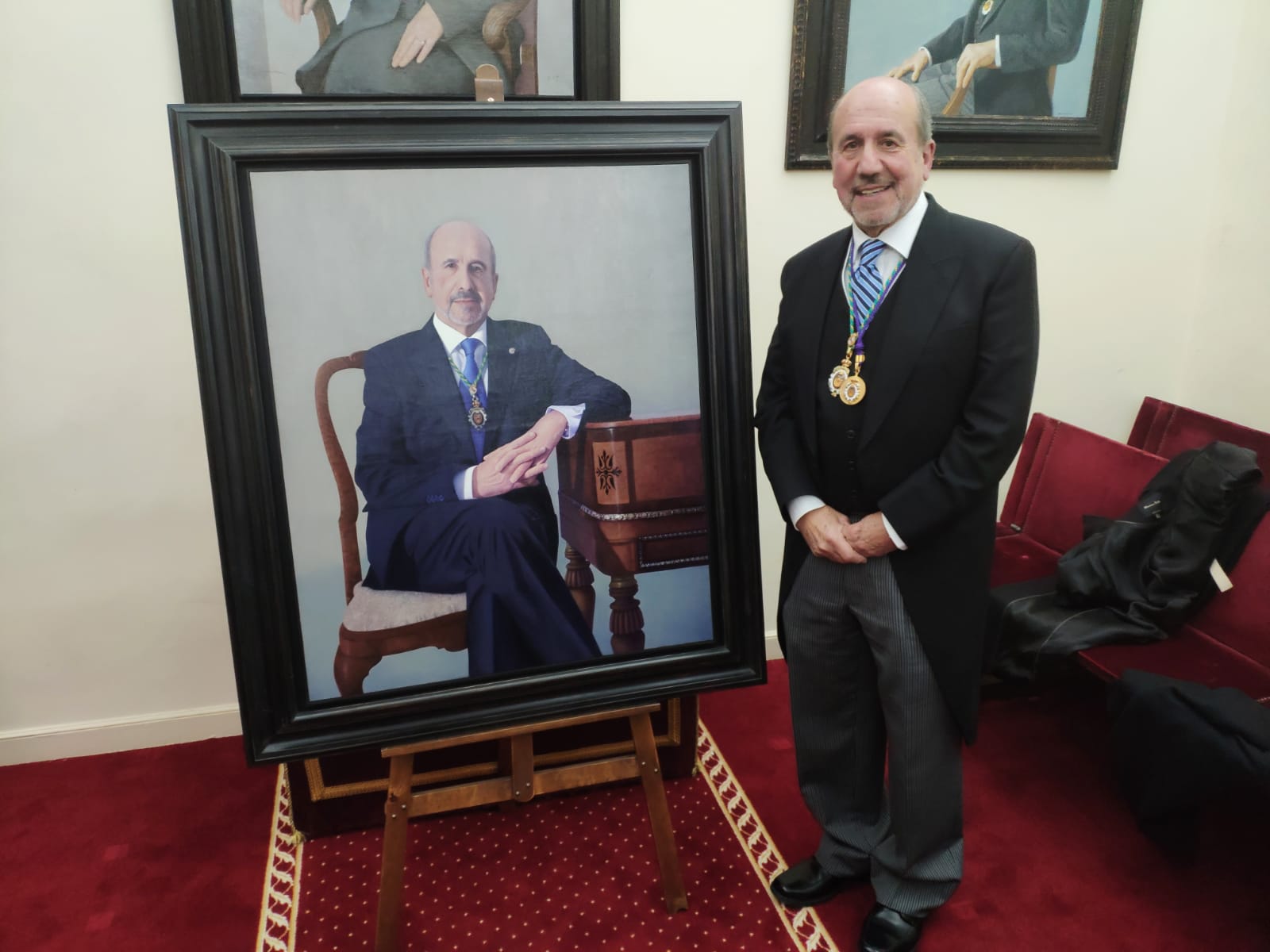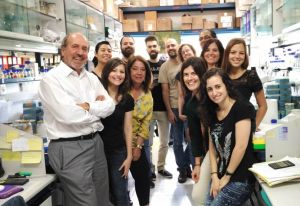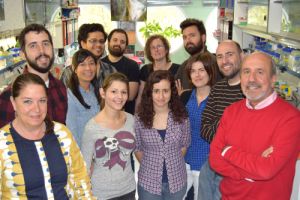NPJ Vaccines. 2024 Mar 6;9(1):53.
L Marcos-Villar#, B Perdiguero#, .... M Esteban, CE Gómez
Abstract
Vaccines based on mRNA technology have revolutionized the field. In fact, lipid nanoparticles (LNP) formulated with mRNA are the preferential vaccine platform used in the fight against SARS-CoV-2 infection, with wider application against other diseases. The high demand and property right protection of the most potent cationic/ionizable lipids used for LNP formulation of COVID-19 mRNA vaccines have promoted the design of alternative nanocarriers for nucleic acid delivery. In this study we have evaluated the immunogenicity and efficacy of different rationally designed lipid and polymeric-based nanoparticle prototypes against SARS-CoV-2 infection. An mRNA coding for a trimeric soluble form of the receptor binding domain (RBD) of the spike (S) protein from SARS-CoV-2 was encapsulated using different components to form nanoemulsions (NE), nanocapsules (NC) and lipid nanoparticles (LNP). The toxicity and biological activity of these prototypes were evaluated in cultured cells after transfection and in mice following homologous prime/boost immunization. Our findings reveal good levels of RBD protein expression with most of the formulations. In C57BL/6 mice immunized intramuscularly with two doses of formulated RBD-mRNA, the modified lipid nanoparticle (mLNP) and the classical lipid nanoparticle (LNP-1) were the most effective delivery nanocarriers at inducing binding and neutralizing antibodies against SARS-CoV-2. Both prototypes fully protected susceptible K18-hACE2 transgenic mice from morbidity and mortality following a SARS-CoV-2 challenge. These results highlight that modulation of mRNAs immunogenicity can be achieved by using alternative nanocarriers and support further assessment of mLNP and LNP-1 prototypes as delivery vehicles for mRNA vaccines.
- Mariano Esteban Rodríguez, head of the Poxvirus and Vaccines group at the CNB-CSIC, has been distinguished with the Castilla y León Prize for Scientific and Technical Research and Innovation.
- He is currently leading one of the two CNB-CSIC projects to develop a vaccine against SARS-CoV-2.
The jury has valued "his research of the biology of viruses and the development of applications, in particular vaccines, to eradicate some of the deadliest diseases of humanity such as AIDS, hepatitis C or malaria. He is currently working on the development of a vaccine against COVID-19. The jury also wanted to highlight his high number of scientific publications and their great impact, which reveal an extensive and very fruitful career of international prestige ".
In addition, the jury has valued "how decades of research are allowing us to face emerging problems such as the pandemic that we are currently suffering."
- Los investigadores del CNB-CSIC lideran dos proyectos para lograr una vacuna contra el coronavirus SARS-CoV-2.
Los virólogos del Centro Nacional de Biotecnología del Consejo Superior de Investigaciones Científicas (CNB-CSIC) Luis Enjuanes y Mariano Esteban han recibido hoy, junto a la farmacóloga María José Alonso, de la Universidad de Santiago de Compostela, la Medalla de Plata al Mérito en la Investigación y la Educación Universitaria, que concede el Gobierno, en una ceremonia celebrada en la sede central del CSIC, en Madrid. La bioquímica del CSIC Margarita Salas y el historiador Santos Juliá han recibido la Medalla de Oro al Mérito en la Investigación y la Educación Universitaria a título póstumo.
Al acto de entrega han acudido la vicepresidenta del Gobierno Carmen Calvo; el ministro de Ciencia e Innovación, Pedro Duque; el ministro de Universidades, Manuel Castells; el Alto representante de la Unión Europea para Asuntos Exteriores y Política de Seguridad, Josep Borrell; el subsecretario de Ciencia e Innovación, Pablo Martín; el secretario general de Investigación Rafael Rodrigo; y la presidenta del CSIC, Rosa Menéndez. Margarita Salas: Considerada como la precursora de la biología molecular en España, y tras casi sesenta años de una constante y fructífera carrera profesional en el ámbito de la investigación, Margarita Salas recibió en 2019 a título póstumo la Medalla al Mérito en la Investigación y en la Educación Universitaria en su categoría de Oro.
- Carmen Elena Gómez receives the Research Prize from the National Royal Academy of Pharmacy (RANF)
- Mariano Esteban receives the Carracido Gold Medal for his scientific and academic career
Carmen Elena Gómez, researcher at the Molecular and Cellular Biology Department received (ex aequo) the Research Prize from the Real Academia Nacional de Farmacia (RANF). The award ceremony took place in the Academia the 15th of January 2020. 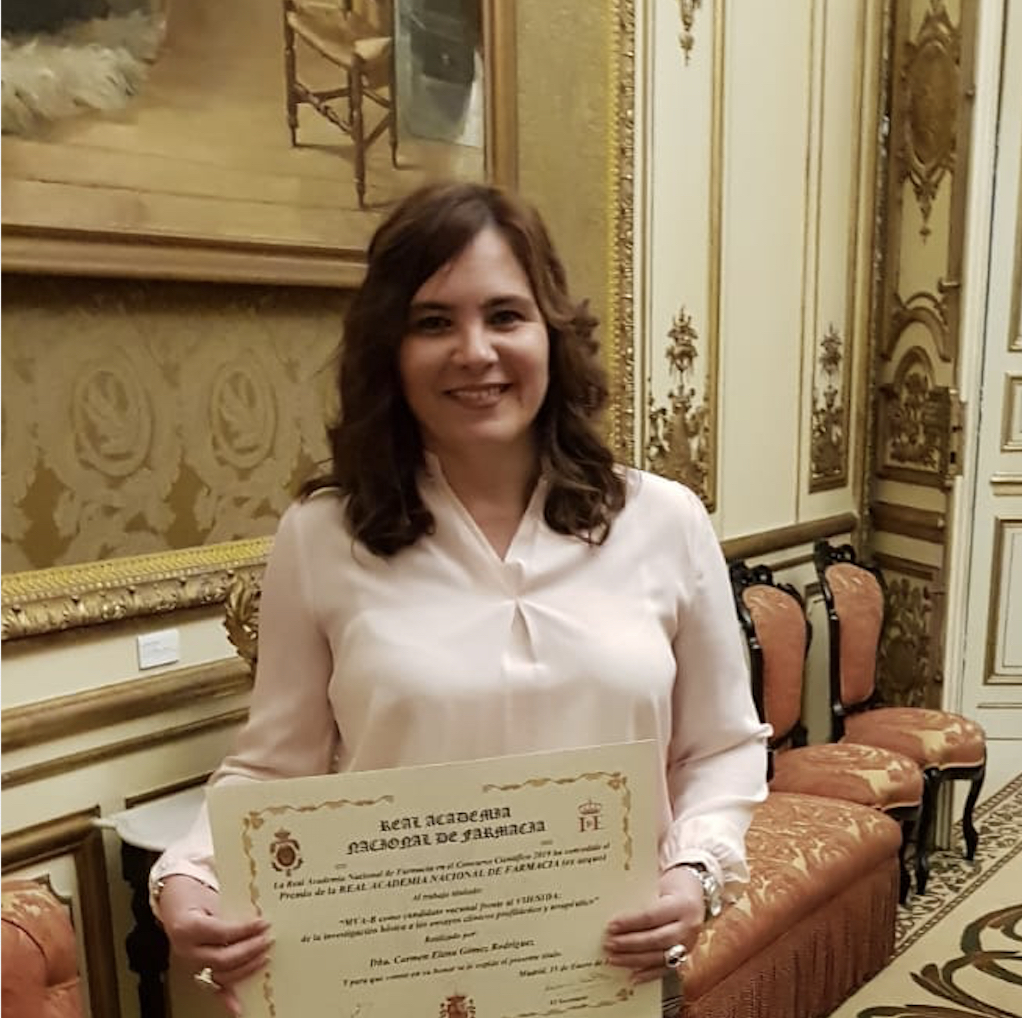
This award recognises the research work “MVA-B as a model vaccine candidate against VIH/SIDA: From basic research to prophylactic and therapeutic clinical trials ”. Carmen Gómez explains "this review is focused in the Ankara modified version of vaccinia virus, collects our main contributions from the basic knowledge of the MVA vector biology, both in vitro and in vivo, to its evaluation as a vaccine candidate against HIV/AIDS in clinical trials. The work details the generation and characterization of the recombinant vector called MVA-B and the preclinical data that supported the evaluation of MVA-B as the first prophylactic and therapeutic vaccine against HIV-1 tested in humans in Spain. In addition, they assess the results of clinical trials and future lines of research on which to work considering the latest scientific advances in the field of vaccines against HIV.
In addition, professor Mariano Esteban has been distinguished with the Gold version of the Carracido Medal for his scientific and academic career, the highest award granted by the RANF. The award ceremony of the Carracido medal took place on Thursday, January 16th. In the act, he read his speech focused in "Vaccines as a disease control system: Where we are and where we are going". Afterwards, a painting by the Cantabrian Ricardo Sanjuán has been discovered to emphasize the work of Mariano Esteban as former President of the RANF (2013-2019)
El ensayo clínico fase I de un procedimiento de vacunación basado en varios componentes combinados contra el virus VIH, causante del SIDA, ha concluido. La vacuna testada incluye un vector de ADN, un vector viral atenuado MVA y un componente proteico. Los resultados indican que el procedimiento de vacunación más efectivo consiste en administrar cada uno de los componentes por separado. El componente viral MVA ha sido desarrollado en los laboratorios del Centro Nacional de Biotecnología del CSIC.
The laboratory of researcher Mariano Esteban, at the Centro Nacional de Biotecnología of the CSIC (CNB-CSIC), forms part of the new European alliance for a vaccine against HIV (EHVA). The association is made up of 39 institutions from around the world and funded with 28.2 million euros. Its aim is to foster the development of new preventive and therapeutic approaches with which to face the challenge of HIV/AIDS.
J Virol. 2015; pii: JVI.03061-14.
Delaloye J, Filali-Mouhim A, Cameron MJ, Haddad EK, Harari A, Goulet JP, Gomez CE, Perdiguero B, Esteban M, Pantaleo G, Roger T, Sékaly RP, Calandra T.
 NYVAC, a highly attenuated, replication-restricted poxvirus, is a safe and immunogenic vaccine vector. Deletion of immune
evasion genes encoded by poxviruses is an attractive strategy for improving their immunogenic properties.
NYVAC, a highly attenuated, replication-restricted poxvirus, is a safe and immunogenic vaccine vector. Deletion of immune
evasion genes encoded by poxviruses is an attractive strategy for improving their immunogenic properties.
Using system biology approaches, we herein describe the enhanced immunological profile of NYVAC vectors expressing the HIV-1 clade C env-gag-pol-nef genes (NYVAC-C) with single or double deletion of genes encoding type I (ΔB19R) or type II (ΔB8R) interferon (IFN)-binding proteins. Transcriptomic analyses of human monocytes infected with NYVAC-C, NYVAC-C-ΔB19R or NYVAC-C-ΔB8RB19R revealed a concerted up-regulation of innate immune pathways (IFN-stimulated genes [ISGs]) of increasing magnitude with NYVAC-C-ΔB19R and NYVAC-C-ΔB8RB19R relative to NYVAC-C. Deletion of B8R and B19R resulted in an enhanced activation of IRF3, IRF7 and STAT1, robust production of type I IFN and of ISGs whose expressions were inhibited by anti-type I IFN antibodies. Interestingly, NYVAC-C -ΔB8RB19R induced the production of much higher levels of pro-inflammatory cytokines (TNF, IL-6 and IL-8) than NYVAC-C or NYVAC-C-ΔB19R as well as a strong inflammasome response (caspase-1 and IL-1β) in infected monocytes. Top network analyses showed that this broad ΔB8RB19R-mediated response was organized around two up-regulated gene expression nodes (TNF and IRF7).
Consistent with these findings, monocytes infected with NYVAC-C-ΔB8RB19R induced a stronger type I IFN-dependent and IL-1-dependent allogenic CD4+-T-cell response than NYVAC-C or NYVAC-C-ΔB19R. Dual deletion of type I and type II IFN immune evasion genes in NYVAC markedly enhanced its immunogenic properties via an increased expression of type I IFNs and IL-1β and make it an attractive candidate HIV vaccine vector.
Daszkiewicz L, Vázquez-Mateo C, Rackov G, Ballesteros-Tato A, Weber K, Madrigal-Avilés A, Di Pilato M, Fotedar A, Fotedar R, Flores JM, Esteban M, Martínez-A C, Balomenos D.
 Self/non-self discrimination characterizes immunity and allows responses against pathogens but not self-antigens. Understanding the principles that govern this process is essential for designing autoimmunity treatments. p21 is thought to attenuate autoreactivity by limiting T cell expansion.
Self/non-self discrimination characterizes immunity and allows responses against pathogens but not self-antigens. Understanding the principles that govern this process is essential for designing autoimmunity treatments. p21 is thought to attenuate autoreactivity by limiting T cell expansion.
Here, we provide direct evidence for a p21 role in controlling autoimmune T cell autoreactivity without affecting normal T cell responses. We studied C57BL/6, C57BL/6/lpr and MRL/lpr mice overexpressing p21 in T cells, and showed reduced autoreactivity and lymphadenopathy in C57BL/6/lpr, and reduced mortality in MRL/lpr mice. p21 inhibited effector/memory CD4+ CD8+ and CD4−CD8− lpr T cell accumulation without altering defective lpr apoptosis. This was mediated by a previously non-described p21 function in limiting T cell overactivation and overproduction of IFN-γ, a key lupus cytokine. p21 did not affect normal T cell responses, revealing differential p21 requirements for autoreactive and normal T cell activity regulation.
The underlying concept of these findings suggests potential treatments for lupus and autoimmune lymphoproliferative syndrome, without compromising normal immunity.
COOKIES POLICY
A cookie is a text file that is stored on your computer or mobile device via a web server and only that server will be able to retrieve or read the contents of the cookie and allow the Web site remember browser preferences and navigate efficiently. Cookies make the interaction between the user and the website faster and easier.
General information
This Website uses cookies. Cookies are small text files generated by the web pages you visit, which contain the session data that can be useful later in the website. In this way this Web remembers information about your visit, which can facilitate your next visit and make the website more useful.
How do cookies?
Cookies can only store text, usually always anonymous and encrypted. No personal information is ever stored in a cookie, or can be associated with identified or identifiable person.
The data allow this website to keep your information between the pages, and also to discuss how to interact with the website. Cookies are safe because they can only store information that is put there by the browser, which is information the user entered in the browser or included in the page request. You can not run the code and can not be used to access your computer. If a website encrypts cookie data, only the website can read the information.
What types of cookies used?
The cookies used by this website can be distinguished by the following criteria:
1. Types of cookies as the entity that manages:
Depending on who the entity operating the computer or domain where cookies are sent and treat the data obtained, we can distinguish:
- Own cookies: are those that are sent to the user's terminal equipment from a computer or domain managed by the editor itself and from which provides the service requested by the user.
- Third party cookies: these are those that are sent to the user's terminal equipment from a machine or domain that is not managed by the publisher, but by another entity data is obtained through cookies.
In the event that the cookies are installed from a computer or domain managed by the editor itself but the information collected by these is managed by a third party can not be considered as party cookies.
2. Types of cookies as the length of time that remain active:
Depending on the length of time that remain active in the terminal equipment can be distinguished:
- Session cookies: cookies are a type designed to collect and store data while the user accesses a web page. Are usually used to store information that only worth preserving for the service requested by the user at any one time (eg a list of products purchased).
- Persistent cookies: cookies are a type of data which are stored in the terminal and can be accessed and treated for a period defined by the head of the cookie, and can range from a few minutes to several years.
3. Cookies types according to their purpose:
Depending on the purpose for which the data are processed through cookies, we can distinguish between:
- Technical cookies: these are those that allow the user to navigate through a web page or application platform and the use of different options or services it exist as, for example, control traffic and data communication, identify the session, access to restricted access parts, remember the elements of an order, make the buying process an order, make an application for registration or participation in an event, use security features while browsing store content for dissemination videos or sound or share content via social networks.
- Customization cookies: these are those that allow the user to access the service with some general characteristics based on a predefined set of criteria in the user terminal would eg language, the type of browser through which you access the service, the locale from which you access the service, etc.
- Analysis cookies: they are those that allow the responsible for them, monitoring and analyzing the behavior of users of the web sites that are linked. The information gathered through such cookies are used in measuring the activity of web sites, application or platform and for the profiling of user navigation of such sites, applications and platforms, in order to make improvements function data analysis how users use the service.
Management tool cookies
This Website uses Google Analytics.
Google Analytics is a free tool from Google that primarily allows website owners know how users interact with your website. Also, enable cookies in the domain of the site in which you are and uses a set of cookies called "__utma" and "__utmz" to collect information anonymously and reporting of website trends without identifying individual users..
For statistics of use of this website use cookies in order to know the level of recurrence of our visitors and more interesting content. This way we can concentrate our efforts on improving the most visited areas and make the user more easily find what they are looking for. On this site you can use the information from your visit for statistical evaluations and calculations anonymous data and to ensure the continuity of service or to make improvements to their websites. For more details, see the link below privacy policy [http://www.google.com/intl/en/policies/privacy/]
How to manage cookies on your computer: disabling and deleting cookies
All Internet browsers allow you to limit the behavior of a cookie or disable cookies within settings or browser settings. The steps for doing so are different for each browser, you can find instructions in the help menu of your browser.
If you decline the use of cookies, since it is possible thanks to the preferences menu of your browser or settings, reject, this website will continue to function properly without the use of the same.
Can you allow, block or delete cookies installed on your computer by setting your browser options installed on your computer:
- For more information about Internet Explorer click here.
- For more information on Chrome click here.
- For more information about Safari click here.
- For more information about Firefox click here.
Through your browser, you can also view the cookies that are on your computer, and delete them as you see fit. Cookies are text files, you can open and read the contents. The data within them is almost always encrypted with a numeric key corresponding to an Internet session so often has no meaning beyond the website who wrote it.
Informed consent
The use of this website on the other hand, implies that you paid your specific consent to the use of cookies, on the terms and conditions provided in this Cookies Policy, without prejudice to the measures of deactivation and removal of cookies that you can take, and mentioned in the previous section.



